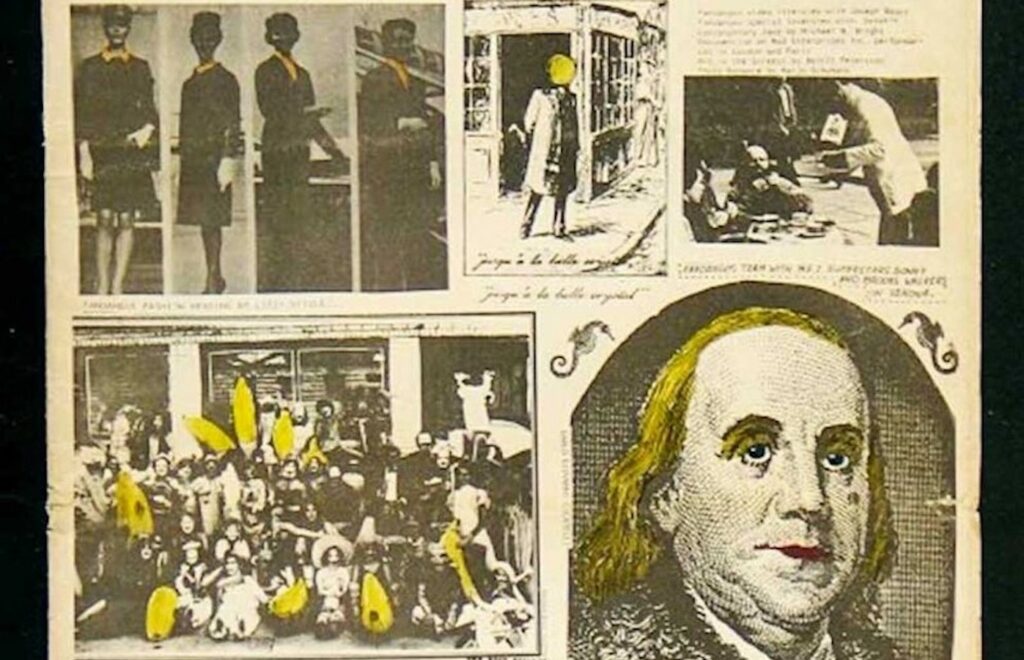Stedelijk Museum, Amsterdam, Netherlands
Deadline: 20 March 2023

FANDANGOS NR. 6, (Detail) 1975. Editors: Raul Marroquin and Marjo Schumans. Publisher: Agora Studio. Printer: Jan van Eyck Academie. Artists’ Books Johan Deumens, Landgraaf.
The postwar artistic ecosystem of Amsterdam has often been characterized by its diverse international perspectives facilitated through Dutch institutions. In recent years, the Stedelijk Museum Amsterdam has expanded its global purview through new acquisitions, thematic exhibitions, and cross-institutional initiatives primarily focused on the Global South. Between 2013 and 2015, the programme Global Collaborations established networks between the Stedelijk and what it referred to as upcoming Global South regions.
Presently, Everyday, Someday and Other Stories: Collection 1950-1980 is narrating different stories from diverse perspectives via a more global presentation of the permanent collection. The museum’s interest in the international is nothing new, as attested by exhibitions from the late 1980s and early 1990s that coincided with the fall of Communism and the very condition of globalization. Wim Beeren’s U-ABC: schilderijen, beelden, fotografie uit Uruguay, Argentinië, Brazilië, Chili served as one of several institutional affirmations (by way of a contemporary art exhibition) of the new democracies in the Southern Cone. 1991’s Wanderlieder, which commingled thirteen Eastern and West European artists, anticipated the end of the U.S.S.R. by eight days.
For Issue 14 of the Stedelijk Studies Journal the aim is to critically reframe discussions on global art and the transnational with the question: what might a decolonized understanding of transnational and transcultural Amsterdam, and the Netherlands more broadly, look like?
Such a framework and critical orientation might attend to how the art world’s contemporary embrace of the global has been part and parcel of neoliberal extraction, via foreign capital, as much as it has drawn more attention to collaborations across borders that have advanced modern and contemporary art experimentation. Yet it also opens up the possibility of drawing attention to long-neglected histories in parallel with developments in art or design, such as decolonization and independence movements in Indonesia, Suriname and the Antilles. Among others, one thinks of the self-taught artist Oey Tjeng Sit, Stanley Brouwn or Armand Baag, who arrived to the Netherlands in 1961 and was instrumental in the establishment of Maysa Foundation and Srefidensie Gallery (1971) as key sites supporting Caribbean artists in Amsterdam. In the present, contemporary artist collectives use the possibilities of intersectional environments or virtual platforms to indicate new avenues of global engagement.
In the call for research, the Stedelijk invites proposals that examine artists, collectives, exhibitions, and spaces (independent and institutional) that reconsider the transnational histories and present nows of art in Amsterdam and the Netherlands. The Stedelijk seeks ideas that address the complex, alternative, artistic and curatorial experiments that concentrate on a diverse range of practitioners in the postwar and contemporary era, many of who hailed from countries in the Global South and outside of Europe. Complementing previous issues of Stedelijk Studies Journal on global art history and museum practice such as #01 Collecting Geographies: Global Programming and Museums of Modern Art, #06 The Borders of Europe, and #09 Modernism in Migration, Issue 14 will ask how might artistic-research and emerging scholarship further complicate our very notion of the transnational as an art-historical paradigm and/or method—and, indeed, Dutch as a stable signifier of national identity for cultural practitioners?
Stedelijk Studies invites proposals that examine artists, collectives, spaces (independent and institutional) and exhibitions that were formative to this history of art in Amsterdam and the Netherlands.
Topics could include, but are not limited to:
Process
Submission
About
The Stedelijk Studies Journal is a high-quality, peer-reviewed academic journal published by the Stedelijk Museum Amsterdam. Issue 14 will be co-edited by Dr. Elize Mazadiego and Dr. Daniel Quiles, with Dr. Charl Landvreugd serving as editor-in-chief.
The journal comprises research related to the Stedelijk collection, exploring institutional history, museum studies, and current topics in the field of art and design. All accepted submissions are subject to scholarly or artistic peer review, and all contributors must be open to receive such feedback and work collaboratively toward a final version.